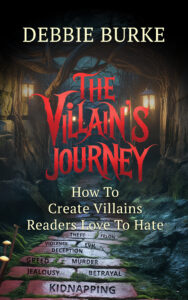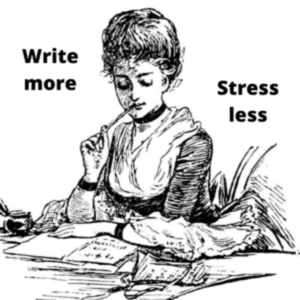
Photo credit: public domain pexels Los Muertos Crew
by Debbie Burke
Edgar Allen Poe was the master of horror and the macabre. What would he think of his name being connected with a real-life 21st century horror story?
Meet Poe the AI Story Bear. This plush cuddly teddy bear is a hot holiday gift item marketed to children ages four and above by PLAi. The company proudly proclaims the toy as “kid-safe cutting edge AI technology.”
The product description reads:
Poe the AI Story Bear magically comes to life to tell you amazing, full-length, one-of-a-kind tales of adventure and imagination. Every story is made up completely from scratch, with some help from YOU and kid-safe cutting edge AI technology.

Photo by Võ Văn Tiến: https://www.pexels.com/photo/child-amongst-teddy-bears-in-festive-vietnam-setting-29735683/
As children, many of us cherished a favorite stuffed toy. We also have fond memories of parents or grandparents reading to us.
Let’s see what happens when AI is added to the mix.
AI-powered toys like Poe, Miko 3, Curio’s Grok, and FoloToys Kumma were reviewed by the nonprofit US Public Interest Research Group (US PIRG) in their annual report on toy safety, “Trouble in Toyland.” Their findings raise concerns about safety, security, privacy, and potential dangers to mental health. The report is a long but worthwhile read.
In some cases, researchers found fluffy, cuddly toys led impressionable little ones into exciting new adventures…like learning where to find knives, how to light matches, and why sexual kinks are appealing.
The scripts for the chatty toys dutifully include warnings about knives which, by the way, are often kept in kitchen drawers. They are sharp and can hurt you or someone else so always ask an adult for help. Matches can be dangerous so, again, ask an adult before you scrape the red-tipped end on the rough surface on the side of the box. And it helpfully elaborates on definitions of kink with the caveat that tying someone up is only okay if the person being tied up consents.
Children always do what they’re told, right? What could possibly go wrong?
In November 2025, Kumma bear was briefly taken off the market due to controversy over sexually explicit responses. Open AI reportedly suspended the developer for violating its terms. But that naughty little bear is apparently available again, now using a different chatbot from a Chinese-owned tech firm, ByteDance, creator of TikTok. .
Manufacturers of various AI toys assure consumers their products have safeguards. Poe’s sale page says:
-
100% KID-SAFE A.I. CONTENT – Poe only uses responsible industry-leading A.I. cloud platforms like Open Ai (the creators of Chat GPT), with robust family content monitoring, committed to protecting kids. As an extra layer of protection, Poe also uses Play Safe technology that limits the ideas shared with the A.I. in the first place, in the form of predefined family friendly icons. No personal information is gathered, no inappropriate themes or content ever exchanged. Every story you create with Poe is 100% fun, safe and secure.
Even if you trust the manufacturer’s assurances, security and safety hazards are still present. These toys use Bluetooth apps on a smartphone and may include internet access, cameras, location trackers, and other online portals. Hackers routinely use those vulnerabilities to get hold of private information.
Apps activate with voice recognition similar to Alexa and Siri, which means it’s listening and recording the child’s voice. Bad actors can alter those recordings into phrases the child never said. For example: “Grandma, I’ve been kidnapped! Send ten thousand dollars ransom in bitcoin.”
According to the PIRG study, sometimes the app listens even without intentional activation:
[One] toy at first caught our researchers by surprise when it started contributing to a nearby conversation.
Of course, there’s nothing to worry about because kids would never get their hands on their parents’ smartphones when Mommy and Daddy aren’t watching.
In wake of the tragic teen suicides, Character AI and ChatGPT are limiting use of their chatbots by minors. Does that mean in toys, too?
That’s unclear. In fact, the opposite may be happening.
Consider the announcement made in June 2025 by Open AI unveiling its new partnership with toymaking giant Mattel. Their statement says Mattel will: “reimagine how fans can experience and interact with its cherished brands, with careful consideration to ensure positive, enriching experiences.”
I wonder what safeguards are in place in their reimagined toys. Hope they work better than current safeguards.
What about the psychological and emotional impacts of AI toys? At a time when curious young brains are developing and eager for new experiences, is a chatbot really a positive example?
In PIRG’s tests, some toys purport to be an intimate, trusted friend and even discourage the child from ending the conversation.
Similar tactics are used to keep adult users engaged with, dependent on, and even addicted to onscreen life.
Thousand of wonderful children’s books are available to entertain, educate, and exercise developing young brains. When parents or grandparents snuggle up with kids and read stories to them, that experience contributes to the child’s emotional wellbeing, mental stimulation, and educational development.
Can that experience be replicated by a storytelling AI-powered teddy bear, even one named Poe?
Not in my world.
This is my last post for 2025 before TKZ’s annual two-week hiatus. May the holidays bring you joy, peace, and love, and a New Year filled with inspiration and creativity!
~~~
TKZers: have you seen AI-powered toys in action? Are they a passing fad? Or will they grow more popular?
~~~
 Stuff your stocking with Tawny Lindholm Thrillers, all books half-price!
Stuff your stocking with Tawny Lindholm Thrillers, all books half-price!

Last minute gift for crime writers! The Villain’s Journey: How to Create Villains Readers Love to Hate.










